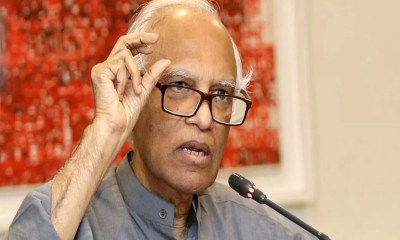Bangladesh`s interim government has accused Adani Power, an Indian electricity company, of breaking their contract by not sharing important tax information.
The government claims that Adani Power failed to tell them about tax exemptions it received from the Indian government, which could have led to lower electricity prices for Bangladesh.
According to Reuters, officials from Bangladesh’s Power Development Board (PDB) say that Adani Power was supposed to inform the government about the tax benefits promptly.
Had they done so, it would have saved Bangladesh around $28.6 million in electricity costs.
Fawzul Kabir Khan, the country’s energy advisor, told Reuters that the issue of these savings would be the key topic in future talks with Adani Power.
The agreement between Adani Power and Bangladesh was signed in 2017. Under this deal, Adani Power, owned by billionaire Gautam Adani, was supposed to provide electricity to Bangladesh from its coal-based plant in Jharkhand, India.
However, after reviewing the contract and related documents, Reuters reports that the deal turned out to be much more expensive than similar contracts with other coal-based power plants.
As a result, Bangladesh is now hoping to renegotiate the terms of the agreement.
According to Fawzul Kabir Khan, Bangladesh now has enough domestic power generation capacity, even without the supply from Adani, although not all domestic power plants are running.
On August 5, Sheikh Hasina, Bangladesh’s former prime minister, was removed from power after a student-led movement. Her government had been closely aligned with India, particularly with Prime Minister Narendra Modi.
After her ousting, an interim government led by Nobel Peace Prize winner Muhammad Yunus took charge.
Reuters was the first to report that Adani Power had not disclosed the tax exemptions it received from the Indian government.
The report also noted that recent charges in the United States accusing Adani and seven of his executives of bribery could influence the review of Bangladesh’s contract with the company.
In response to the claims, an Adani Power spokesperson said the company had followed all contractual obligations and had not received any signals that Bangladesh was planning to review the deal.
Adani Group has not commented on the tax exemption issue or the other allegations made by Bangladesh, but they dismissed the bribery charges in the U.S. as "baseless."
Tax Exemption Details
Adani Power’s Gadda plant, which runs on imported coal, was built specifically to supply electricity to Bangladesh.
The company says that the deal with Bangladesh supports India’s foreign policy goals.
In 2019, the Indian government declared the Gadda plant part of a special economic zone, giving Adani Power tax breaks on income and other duties.
According to Reuters, Adani Power was supposed to notify Bangladesh about any changes in the tax rates or any exemptions it received under the 2017 contract.
However, when Bangladesh requested that the electricity prices be adjusted to reflect the tax benefits, Adani Power did not respond.
Even though these documents were not made public, Reuters has seen the records.
Two PDB officials confirmed that the letters sent in September and October had not been answered by Adani Power.
According to PDB’s calculations, if the electricity prices were adjusted for the tax benefits, Bangladesh could have saved $0.35 per unit of electricity.
“Hasty Agreement”
In 2009, after the Awami League government came to power, several rental and fast-track power plants were approved in order to quickly solve the electricity shortage.
However, these plants came with high costs, and the government had to provide subsidies, which taxpayers had to pay.
This has led to criticism due to the high electricity prices.
In 2010, the government passed a special law to legitimize the rental power plants.
Although the law was meant to last two years, it was extended multiple times. On November 30, the interim government canceled the law.
Tim Buckley, a director at Australian research firm Climate Energy Finance, found it unusual that the Adani deal bypassed a competitive bidding process.
Auctions are typically used to ensure the "best price."
In September, after Yunus’ interim government took charge, a panel of experts was formed to review major energy deals, including the Adani deal. The panel also recommended reviewing the terms of the contract.
A report by a commission formed to assess Bangladesh’s economic situation, submitted on December 1, stated that the U.S. bribery charges against Adani made it necessary for Bangladesh to reassess the deal.
The commission also noted that the deal was made hastily.
After being removed from power, Sheikh Hasina fled to India and has not been seen publicly.
Her son and advisor, Sajeeb Wazed Joy, told Reuters that he wasn’t aware of any corruption in the Adani deal but was sure that no corruption had taken place.
In response to questions about political influence, Joy said, “I can only assume that the Indian government lobbied for the deal, and that`s why it happened.”
Neither Modi’s office nor other Indian officials responded to Reuters’ requests for comment.
Disputes Over Unpaid Dues
On October 31, due to a dispute over unpaid dues, Adani Power reduced its electricity supply from the Gadda plant by half. Reuters obtained a letter from Adani Power dated July 1, rejecting PDB’s request to continue the electricity discounts.
Adani Power had provided these discounts until May, saving Bangladesh nearly $13 million.
However, the company refused to continue giving the discounts, saying no further discounts would be offered until the outstanding payments were settled.
Adani Power claims that Bangladesh owes them $900 million, while PDB states that the amount is around $650 million. Bangladesh is facing difficulty in securing enough foreign currency to pay the debt.
Rezaul Karim, chairman of PDB, told Reuters that Bangladesh was upset when Adani Power reduced the supply, especially after sending $97 million to Adani in October, the highest payment of the year.
The pricing formula in the 2017 agreement, based on two indices, has now become a major point of dispute. According to Bangladesh’s electricity purchase summary, the price of electricity from the Gadda plant is 55% higher than the average price of electricity imported from India.
Three PDB sources confirmed to Reuters that Bangladesh is pressuring Adani Power to use other criteria to lower the prices after revising one of the indices last year.
However, Adani Power has rejected this proposal. A spokesperson for the company said that the two parties would meet soon to discuss the issue.
Although mediation of the contract was planned to take place in Singapore, Fawzul Kabir Khan told Reuters that Bangladesh’s next steps would depend on the ongoing court investigation.
“If evidence of bribery or irregularities is found, the court’s decision to cancel the contract will be something we must comply with.”







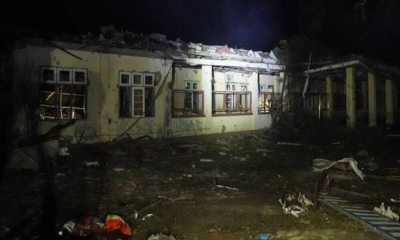


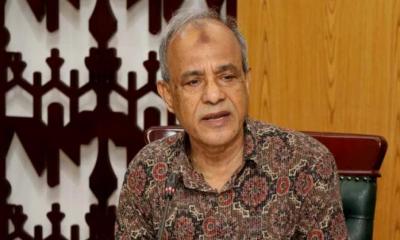
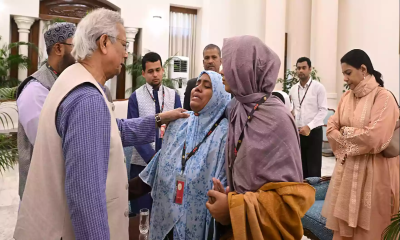





-20251212132043.webp)
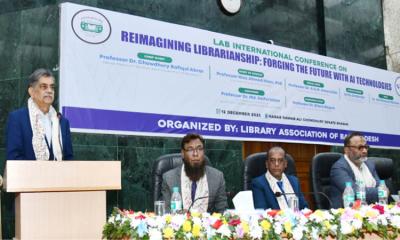
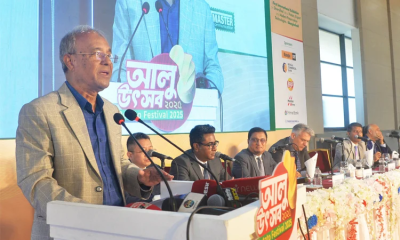







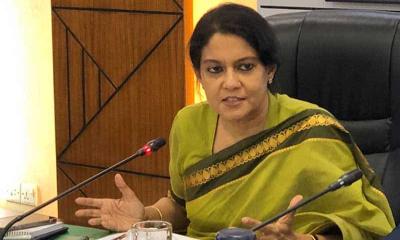





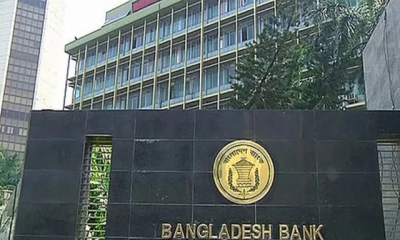

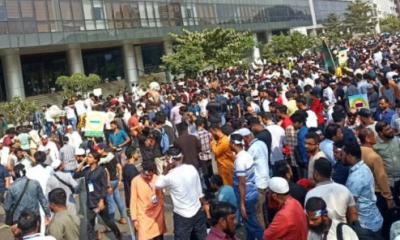
-20251207131533.jpg)

